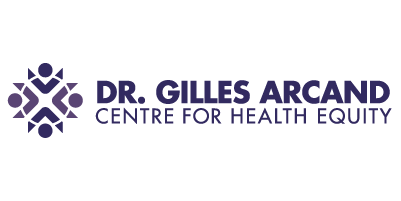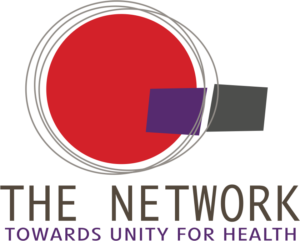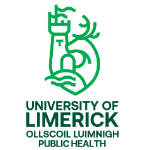
The Social Accountability Fellowship is a collaboration to advance Impact, Accreditation, and Leadership by The Network: TUFH, NOSM University and the University of Limerick.
The goal of this fellowship is to design and implement social accountability principles and standards in your institution to better respond to the priority health needs of your societies, communities, and contexts.
See here for profiles of the 2023-2024 Fellowship Cohort.
Anyone can apply to this fellowship opportunity, but successful applicants will be individuals representing a team of at least two from their institution (individuals may apply, but institutional support is required). This fellowship is geared for institutional leadership who are committed to and are able to implement social accountability in their respective institutions.
If you have any questions please contact Dr. Maxwell Kennel, Social Accountability Coordinator, TUFH / NOSM University at maxkennel@thenetworktufh.org
November 21st and December 12th 2023: UTC 2:00-4:00 PM
Social Accountability is an approach to addressing inequities in healthcare and reflects the social contract that the medical profession has with the societies it serves. In 1995 Boelen and Heck defined the concept of Social Accountability for the WHO as: “the obligation of the faculty to direct their education, research and service activities toward addressing the priority health concerns of the community, the region, or nation they have the mandate to serve.” The key definition has transformed over time, and the conversation on Social Accountability has bridged into many new areas like accreditation, social policy, and health equity.
This first module in the Social Accountability Fellowship will provide interactive opportunities to understand the how the concept of Social Accountability and the theory of society behind it can lead directly to actionable results in health professional education. It begins by showing how health professions education institutions ought to improve on how they educate medical graduates in the knowledge and skills they need to have a positive impact on societal health.
The two sessions in this module are focused on providing you with the knowledge and skills you need to educate leaders in your context and empower them to lead change within your institution. Module content will focus on:
1. Appreciating the role of Social Accountability in improving communities through medical education
2. Explaining the current understanding of Social Accountability principles, and rationale in the context of medical and health professions education in the light of the WHO definition and other documents
3. Analyzing the values of Social Accountability and the interrelationship between these values in different health systems in the context of the Social Accountability partnership pentagram plus
4. Evaluating roles of stakeholders in health professions education, in ways that prepare for Module 2
January 23rd and February 13th 2024: UTC 2:00-4:00 PM
Stakeholder Partnership and Engagement: Engaging and partnering with key stakeholders in health professional education and health is at the core of the definition of Social Accountability, which refers to “the priority health concerns are to be identified jointly by governments, health care organizations, health professionals and the public.” This second module focuses on how concrete actions that engage with community stakeholders are central to the pursuit of Social Accountability, and does so by focusing on community engagement and designing curricula for impact. According to the report of the High-Level Commission on Health Employment and Economic Growth, curricula should be developed in partnership with communities served by the school and with other stakeholders. These include students, service providers, community-based organizations, governments and members of underserved populations.
School Outcomes: The accountability of academic institutions usually ends at graduation or the publication of a paper. Outcomes—such as the placement, practices, and retention of medical graduates in areas of greatest need and the policy or practice impact of a research project—are seldom tracked. Since socially accountable programs and schools set out to produce graduates who choose careers and practice locations that are aligned with health system needs, including the needs of marginalized populations, it is essential that they track their graduates. Countries such as Australia who struggle with providing medical professionals in rural and remote regions and who have invested significantly in increasing recruitment and retention in those areas have set up national databases to track graduates. However, many current tracking efforts are done by schools themselves (see, for example, the physician tracking study at NOSM University) or third parties such as program funders.
Societal Impact: To ensure that programs and schools are addressing evolving needs in the society, regions and communities they serve, schools need to regularly seek to evaluate the outcome of their efforts as well as the impact they are having on graduates and their practice. Ultimately, they should measure their impact on policies, practice and performance of the health system and health in the communities they serve. Assessing the effect of education strategies on health systems and population health is clearly challenging as it is influenced by a multitude of complex, interlinked, dynamic factors and conditions many of which are not within the control of the education institution. Consequently, researchers need to apply multiple methodologies to build evidence for attribution, contribution, and accountability. Schools striving towards greater accountability and impact are beginning to assess impact.
Session 1 frames a process to develop and define aspirational faculty/school outcomes and societal impacts and mechanisms to gather needed data. Participants will define aspirational concrete outputs, outcomes, and impact measures for the school/faculty to determine school outcomes (i.e. an appropriate number of the school’s graduates practice according to where they are needed in the geographical region the school serves) and societal impact (i.e. the school’s education, research, its graduate, health service and partnerships have a positive impact on the health care, the health and health equity of the communities/regions the school and it’s graduates serve).
Session 2 frames a process to identify and engage stakeholder partnerships through collective impact/action theory and practice designed by the Tamarak Institute. Participants will define which stakeholders to include, define a process and foundation for the stakeholder’s voice to be integrated through a bottom up social innovations process, and test their ideas on targeted stakeholders.
March 19th and April 16th 2024: UTC 2:00-4:00 PM
Policy is most often produced by legislative bodies, administrators, and decision-makers who are far removed from the realities of the day-to-day lives of their constituents. Linking social behaviour with policy design calls for a revision of the top-down approach by starting with the needs and resources of a population and developing a policy responsive to those needs. This module focuses on how, when social behavior is applied to policy design, the approaches taken by private, nonprofit, and government organizations on a national and global scale can be transformed by establishing a greater understanding of the dynamics at the ground level. The general public, as well as government leaders, social investors, and private donors, are demanding new social models that are cost-effective, financially self-sustaining, adaptive to feedback and performance measures, have clear outcome accountability measures, and have the potential for large-scale impact and system change. This module focuses on how to do so.
Session 1 frames a process to develop and enhance participant institution’s capacity to conceptualize, shape, and influence policies. The social, economic, legal, ethical, political and structural contexts that influence public policy, planning, evaluation, and funding will be examined. Participants will examine the institutional, social, and policy decisions to know how governments make policies, and investigate how the government, the private enterprises, purchasers, and advocacy organizations have each played an important role in setting the political agenda, as well as the intended and unintended consequences of those policies. Session 1 will also frame explore globally accepted standards for Social Accountability. Participants will conduct a comparative analysis of globally accepted standards with their country accreditation standards resulting in the framing of a policy agenda to include missing social accountability standards.
Session 2 introduces participants to the policy mapping process. Participants will develop a strategy, using the policy mapping tool, to integrate social accountability standards into country accreditation standards. Participants will draft a short policy paper to distribute to local legislators, ministers of health, and accreditation agencies.
May 14th and June 11th 2024: UTC 2:00-4:00 PM
Module 4 frames a process for institutional health professionals to advance their understanding and application of the factors required for successful organizational change. The overall aim is to enable participants to develop a lens for viewing change in their environment and then applying this lens to a particular change in their organization. Successful change is an essential requirement for organizational sustainability. The institutions and organizations in which health professionals work are no exception.
This module emphasizes the importance of relationships in complex, rather than complicated, organizations. All the important factors of successful organizational change need to be considered within a framework of the importance of relationships. Quality improvement should not be confused with quality assurance. Quality assurance can be a useful auditing process for an organization, but the position of this framing is that continuous quality improvement involving the strategic use of feedback loops is an essential component of successful organizational change. Participants will learn about Leadership Theories and their application in the context of health professions education Leadership models; Change Management Techniques; Organisational change models and their application in health professions education; Challenges in leadership and change management in health professions education Assessment Reflection on own leadership style and development plan.
Session 1 introduces the concept of driving change through a bottom-up vs. top-down process using the Social Innovations Lab process that ensures buy-in, increases the chances for adoption and implementation, and builds a culture of change. Participants will define how the Social Innovations Process might be adapted to fit within their own institution or local context.
Session 2 will include a panel discussion of Institutional Deans and Leadership on how organizational change was achieved within the context of adopting and implementing Social Accountability Standards into their respective school and faculty. Participants will work in teams, moderated by expert panelists, to develop a strategy to achieve adoption and implementation by their respective institutions.
July 9th 2024: UTC 2:00-4:00 PM
The final session of the fellowship will provide an opportunity for each fellowship team to present their policy strategy that provides resources for implementing Social Accountability principles and activities in their specific institutional contexts. Members of the fellowship team – Nicholas Torres, Maxwell Kennel, and, Erin Cameron, alongside ISAT alum and other experts – will provide live feedback on the presentations in a roundtable and group format. This session will signal forward to the Ubuntu 2024 conference in September 2024.




